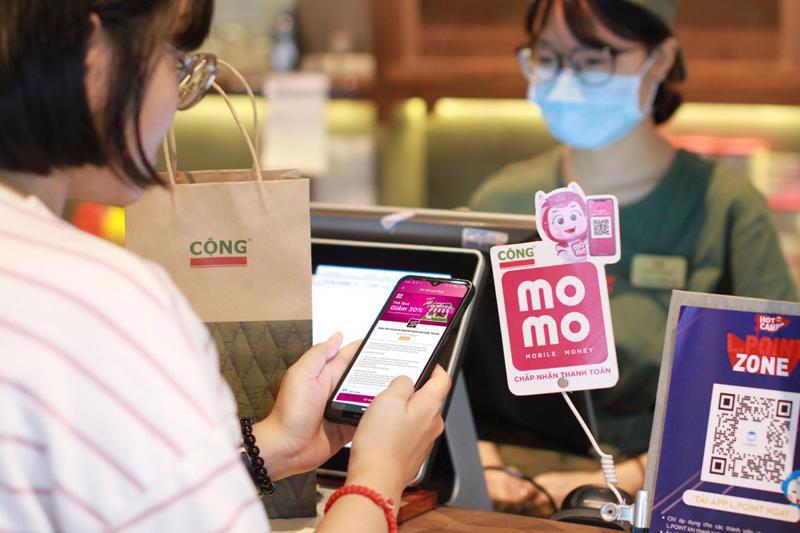Analysis released by FiinGroup - a Vietnamese provider of financial data, business information, and industry research - on February 23 indicates that the number of active e-wallets in Vietnam is expected to rise to 50 million by the end of this year, an increase of 39 per cent compared to the 36 million active users recorded in 2023.
Its prediction came after studying data related to development trends in Vietnam’s e-wallet market, which revealed a marked and stable increase over the years. Transaction volumes and value have consistently achieved double-digit growth, with compound annual growth rates (CAGRs) of 80.4 per cent and 83.5 per cent in the 2018-2023 period.
The development of Vietnam’s digital economy has accelerated the use of digital payment methods and the role of intermediary payment service (IPS) organizations in the country. According to FiinGroup, as of June 2023, the number of IPS providers in Vietnam had increased to 50, reflecting the market’s allure in response to government initiatives promoting non-cash payments and financial inclusion.
The increasing use of mobile payment methods is facilitated by the high penetration of smartphone usage. The proportion of smartphone subscribers was estimated at 73.5 per cent in 2022, or 72.46 million people, and is forecasted to reach 82.17 million people by 2025, signaling a promising market to explore.
At a recent press conference, Mr. Pham Anh Tuan, Head of the State Bank of Vietnam’s Payment Department, said the number of transactions using mobile phones in 2023 surpassed 7 billion with a total value of over $1.98 trillion, increases of 61 per cent and 12 per cent year-on-year, respectively.
In its analysis, FiinGroup pointed out that despite there being 50 IPS providers, most of the market is dominated by a handful of major companies, mainly MoMo, VNPay, and ShopeePay.
The country’s leading e-wallet, MoMo, revealed its ambition to be a super-app by proactively diversifying its affiliate partners and services via M&A and investments in other startups or companies, while ShopeePay has exploited its strength in cooperation with e-commerce and VNPay has focused on its core strengths of payment gateways at local retail stores and nationwide partnership networks.
Though the market is dominated by these major players, there is still room for growth, as each has gradually shaped its unique selling point (USP) in certain segments, leaving room for newcomers.
While the digital payment market has shown impressive growth, FiinGroup also noted certain challenges that may hamper this trend. IPS providers have not yet escaped from the high cost of acquiring and retaining customers. Numerous users have voiced a preference for e-wallet payments, citing the alluring discounts and vouchers they receive as key factors. Users tend to gravitate towards promotions and subsequently quite readily switch to another provider.
This necessitates constant promotional efforts by e-wallets and payment gateways, putting a huge cost burden for these companies. Consequently, top players with a multi-million user base, like MoMo and Shopee Pay, have continued to suffer huge losses despite seeing constant growth in net sales.
The long-term competition is expected to shift the emphasis from promotions to technological advancements, comprehensive ecosystems, the customer experience, and diversifying revenue streams through additional financial services.
Many players have shown an interest in digital lending, but Vietnamese regulations prohibit non-banking entities from directly offering loans. Consequently, IPS providers have opted for collaborative arrangements with banks or finance companies to facilitate consumer loans on their platforms.









 Google translate
Google translate